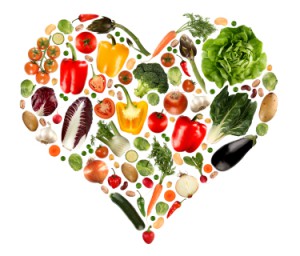Could Catering to Special Diets be Worth it for You? Part 1
 Healthy eating is supposed to be all the rage now—so why aren’t more people doing it? As you get an increasing number of requests to accommodate out-of-the-mainstream diets (i.e., vegetarian, vegan, gluten-free, low-sodium, diabetic-friendly, and many more), does that increase represent a large enough marketshare to make revising your menus a good idea? Could catering to special diets be worth it for you? Could offering healthier food actually increase your marketshare?
Healthy eating is supposed to be all the rage now—so why aren’t more people doing it? As you get an increasing number of requests to accommodate out-of-the-mainstream diets (i.e., vegetarian, vegan, gluten-free, low-sodium, diabetic-friendly, and many more), does that increase represent a large enough marketshare to make revising your menus a good idea? Could catering to special diets be worth it for you? Could offering healthier food actually increase your marketshare?
From an ethical perspective, as a caterer, do you have a responsibility to help people find healthy food choices that nourish and satisfy them, rather than offering them the same unhealthy choices again and again?
These are the questions so many caterers and restaurants face, and we brought these questions to renowned health coach Yeshareg Demisse (affectionately known as Yeshi) to get some practical answers for Total Party Planner readers and clients.
You see, Yeshi isn’t just a health coach and advocate. She is a hard-working restaurant owner and caterer, serving up exotic ethnic food from her homeland in Richmond, VA (a relatively conservative place, usually associated more with barbecue and soul food than with healthy eating, despite having one of the highest number of locally owned restaurants per capita in the country). She currently owns and runs the Nile Ethiopian restaurant with her sons. The Nile has been going strong for seven years. However, she’s been studying and teaching about the healing properties of food for several decades.
“My belief in natural healing is a childhood passion,” says Yeshi, “Growing up in my home country, Ethiopia, I always opted for my grandma’s or my mom’s home remedies over visiting the doctor.” So receiving formal training in the healing properties of food was a natural next step for her.
While Yeshi was working with the United Nations Development Programme in New York (1982-1996), a Japanese colleague turned her on to the healing potential of a macrobiotics diet. “My colleague was in the process of curing a stomach cancer by following this diet,” Yeshi says. The encounter led Yeshi to take her first cooking lesson at what was then the Macrobiotic Center of New York and introducing this kind of food and lifestyle to her family.
The catering arm of their restaurant doesn’t just cater Ethiopian food. They actually provide a wide assortment of recipes, but their specialty is catering to specific kinds of diets—low-fat, low-sodium, vegan, gluten-free—you name it, they can cook for it. Their main emphasis is on meals for people with diabetes. And it’s guaranteed to be some of the most delicious food you’ve ever had.
That’s the message that Yeshi sends when she speaks, teaches cooking classes to kids or adults, and discusses menu options with any of her catering clients. That healthy food can be delicious—even cravable!
Her loyal following of fans would agree—but how does she do it?
“People always assume that healthy food is bland and has no taste,” Yeshi states. When asked what caterers can do to persuade people that this just isn’t true, Yeshi offers, “In order to dispel this belief, caterers need to incorporate appropriate and healthy seasonings and herbs, which also reduces the need for salt and fat, in order to satisfy consumers’ taste buds.”
Her second piece of advice—convenience. “Providing conveniently packaged, freshly made healthy meals could contribute a great deal to getting people to eat healthy. More than anything, creating awareness is critical.”
The disconnect between what people know is good for them and what they actually want and crave comes from many factors, Yeshi points out. It’s not just about the food but about our lifestyles. People eat on the go, while driving, commuting, and even working at their desks. Lunch could be a pre-packaged microwave meal or fast food. “The food industry pushes convenient food loaded with numerous unhealthy additives and preservatives,” says Yeshi. “Caterers can play an important role in shifting such habits by providing information on the health benefits of what they are offering.”
In our next two blogs, we’ll talk to Yeshi more about her experiences using food to heal people. She’ll tell us more about how she worked one-on-one with an alternative healthcare doctor who asked her to cater for her center and her patients, who were battling cancer. We’ll also talk more about easy ways you can take existing recipes and transform them into special request items by leaving out or substituting certain ingredients.
Could catering to special diets be worth it for you? We’ll also talk about how being known as the go-to caterer for special diets could boost your reputation—and your business.